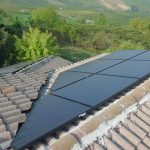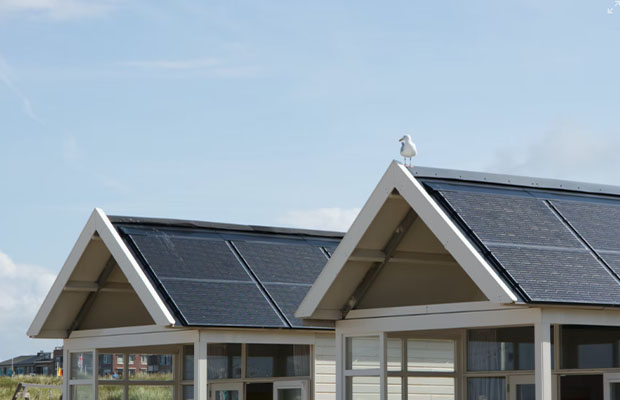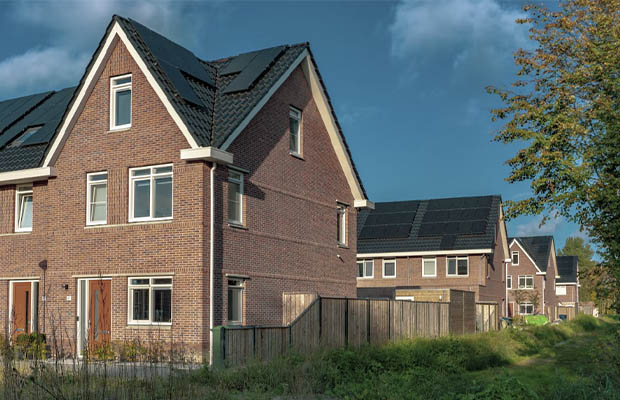People have recently become more conscious of environmental pollution and have taken several actions to reduce it. The use of solar energy as the main source of energy is a very important step toward change. From commercial to residential purposes, solar energy is widely used.
There are two main categories of solar energy systems: commercial and residential. Both have advantages and disadvantages, so it’s crucial to pick the option that best suits your requirements. Check out the main distinctions between the manufacture of residential and commercial solar panels below.
Table of Contents
Solar Energy Overview
Even with Covid-19, solar has continued to set records in 2019 and the outlook for 2020 is positive as well.
By the end of 2019, 627 GW had been installed worldwide, according to the IEA. 18 countries installed at least 1GW in 2019 marking the milestone of more than 10GW of cumulative solar capacity across 9 countries.
China continued to hold the top spot in the world’s PV market as of 2019. However, as shown in the following graph, if we contrast the development of annual installed capacity by nation and region, China’s dominance was weakened in 2019. If in 2018, the country added over four times more solar than the second largest market in the world (USA), in 2019 China’s new capacity additions descended to 30,1 GW while those of the USA grew to 13,2 GW. As a result, the percentual change has been cut in half.
Commercial Systems
A system that produces renewable energy for commercial sale but has no utility interconnection, according to the National Electrical Code (NEC).” This definition includes a huge variety of commercial solar applications, from big grid-connected solar farms to little off-grid businesses.
Residential Systems
They are typically grid-tied, generating solar power for the homeowners to use while being connected to the public utility grid. From a few kW to several MW, these systems can be of various sizes. Commercial solar systems, in contrast, are typically much bigger, with some installations being over 1 GW in size.
Main Difference Between Commercial And Residential Solar Panels
1. Commercial Vs Residential Solar Power Construction
One of the major distinctions between residential and commercial solar panel construction in the burgeoning solar industry. For starters, commercial solar panels typically have a larger surface area than residential solar panels.
Commercial solar panels typically have 96 cells and measure 78 inches by 39 inches, whereas residential solar panels typically measure 65 inches by 39 inches and have 72 cells.
This is due to the fact that commercial solar panels frequently need to produce significantly higher amounts of energy, and commercial properties typically have more space for this purpose.
2. Installation
On the surface, the process for installing both commercial and residential systems through a local solar company is very similar. Both employ a bolted racking system, which is regarded as the industry standard for both safety and effectiveness.
But there is a significant distinction. It is necessary to take a different approach because homes typically have pitched roofs whereas commercial buildings are more likely to have flat roofs. To mount the panels and fasten them to the roof of a home, a penetrating racking is typically required. With commercial properties, this is not required.
3. Incentives And Tax Breaks
You can get paid to go solar, did you know that? For adding solar panels to your home, you are qualified for a federal tax credit as a resident. With this rebate, you will be given a lot of the money you spent on the panels and the installation.
In addition, certain states, like Kentucky, offer tax breaks from the state government to encourage residential solar installation.
4. Color
Commercial panels almost always have a different color from residential ones. Residential solar panels are typically black, whereas commercial ones could be white or silver. The only justification for this is purely aesthetic and has nothing to do with practicality.
For homeowners, black solar panels can be easily disguised to blend in with a house roof, eliminating the issue of unsightly panels on your house. This poses less of a problem for commercial properties.
5. Cost
The issue of upfront costs is the last. Commercial panels will always cost more per panel because they are larger and frequently have more energy storage capacity. But the price you pay for energy production per watt, whether for commercial or residential panels, is the same.
Can Residential Solar Systems Use Commercial Panels?
Although there are a few differences between each solar system, it is possible to use a commercial solar panel for a residential system and a residential solar panel for a commercial system. In general, a commercial solar installation will need more specialized tools and produce more power than a residential installation.
Conclusion
Despite having some differences, residential and commercial solar power systems share the following characteristics: Both of them defend the environment.
Understanding the fundamental changes that are reshaping how we consume energy is crucial for understanding the distinction between commercial and residential solar power.





